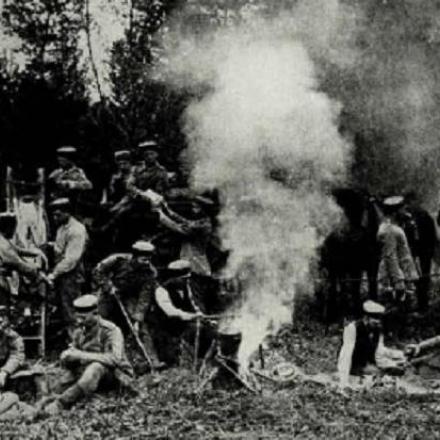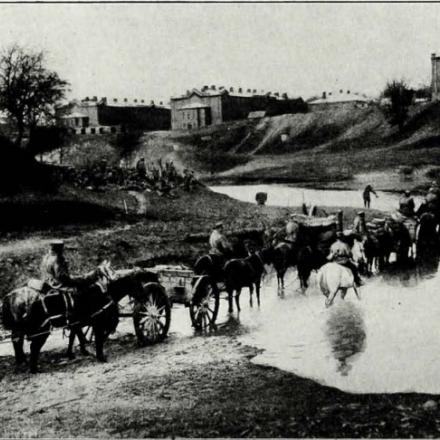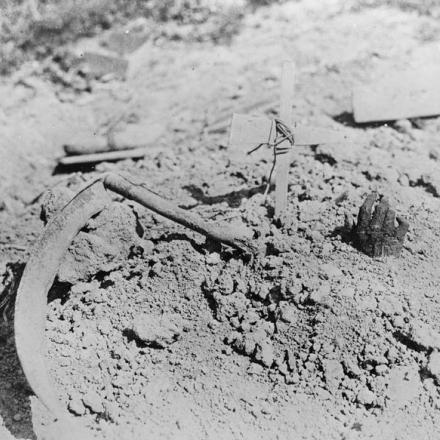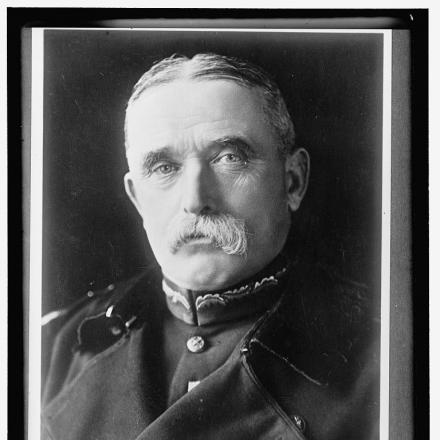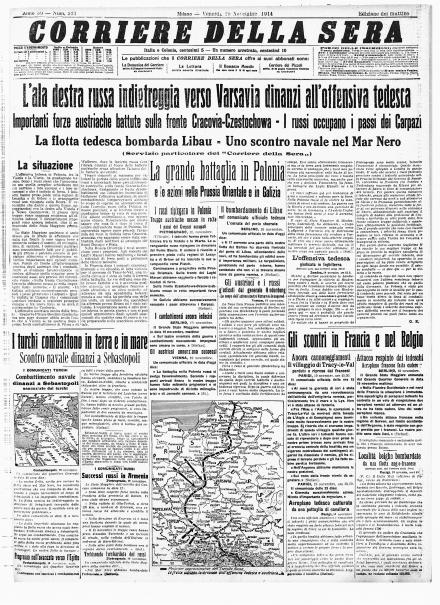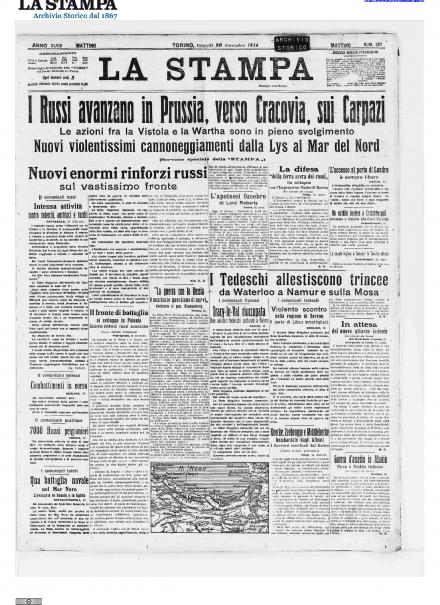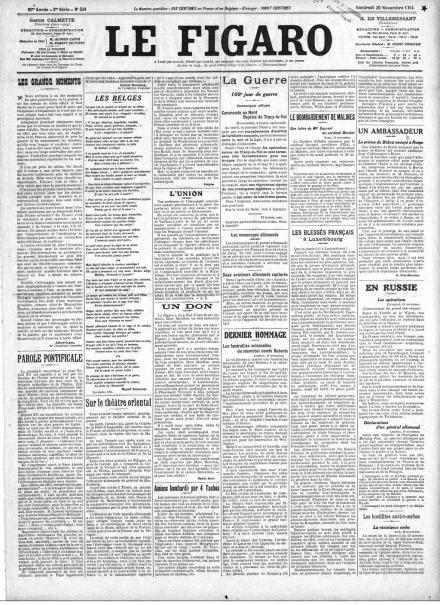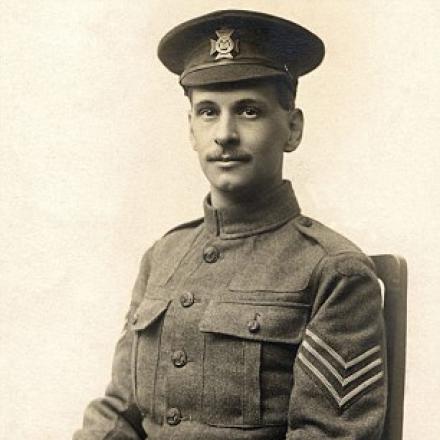"Questione di nervi"
Il 20 novembre l’esercito tedesco attacca le linee russe da Łowicz a Skierniewice, una cinquantina di chilometri a nord-est di Lodz. Il Generale Hindenburg ha analizzato la situazione in un’intervista rilasciata alla Neue Freie Presse: «La forza dei russi è costituita dalle fortificazioni. Sanno trincerarsi ottimamente, ma se il terreno sarà congelato avremo un vantaggio, perché non potranno scavare e nascondersi nelle buche».
Ecco spiegato lo strano tempismo dell’offensiva tedesca, con l’inverno alle porte; la strategia è rischiosa, ma potrebbe pagare. Hindenburg chiude con una considerazione: «La guerra con la Russia è anzitutto una questione di nervi». È evidente, il Comandante tedesco non si aspetta una vittoria in breve tempo. Ci sarà da soffrire e resistere più del nemico.
A Londra l’Ammiragliato britannico annuncia l’estensione del campo minato nel Mare del Nord. La decisione va di traverso ai norvegesi, già irritati dal primo provvedimento.
D’accordo con i Governi svedese e danese, Oslo invia una nota ai paesi belligeranti: protestano ufficialmente «contro la violazione delle regole fondamentali del diritto internazionale, cioè contro la posa delle mine sulle grandi vie commerciali marittime, senza riguardo per la sicurezza della navigazione».
Il messaggio è traducibile in altro modo: sul continente fate come volete, uccidetevi pure, ma almeno non importunateci con le vostre beghe.
Davide Sartori
GLI AVVENIMENTI
Politica e società
- L’Ammiragliato inglese annuncia l’estensione del campo minato nel Mare del Nord.
- Pubblicato il quarto dispaccio di Sir John French riguardo la battaglia di Ypres.
- In considerazione della mutata situazione, i Governi britannico, belga e francese ritirano la proposta di rendere l’Africa un territorio di libero scambio.
Fronte orientale
- Polonia: i tedeschi attaccano le linee russe da Łowicz a Skierniewice.
Fronte asiatico ed egiziano
- Egitto: il Bikanir Camel Corps sconfigge i turchi sulla costa dietro Port Said.
Parole d'epoca
Sergeant Bernard Joseph Brookes
Diario
It was very cold to-day and snowing fast, but we turned out and practised range-finding.
In the evening there was a gorgeous sunset. I might mention that never have I seen finer sunsets than in this part of France.
In the trenches, one having plenty of time in which to look round, perhaps the sunsets are more noticeable than in England, but I think that the country being so flat has an effect of making it possible to see such fine sunsets.
We continued doing the work mentioned above with very little variation until the end of the month, by which time we were absolutely 'fed'.
On one of our route marches we noticed a dog working a mill, and another pulling a small cart, and other incidents showed us how in France, dogs are used for purposes such as we would not think of in England.
Our transport was a mile or two back, and every day some men had to be on guard there.
A farm was a short distance away but too far for sleeping, so we had to make our beds in a haystack, and although it certainly was my first experience of so sleeping, I would recommend it in the face of a better substitute not being available.
Of course the rats were rather unpleasant but one can get used to them, as we had to in the trenches. At any rate I was by no means pleased when called at 2.00 am to turn out for a couple of hours' guard.
